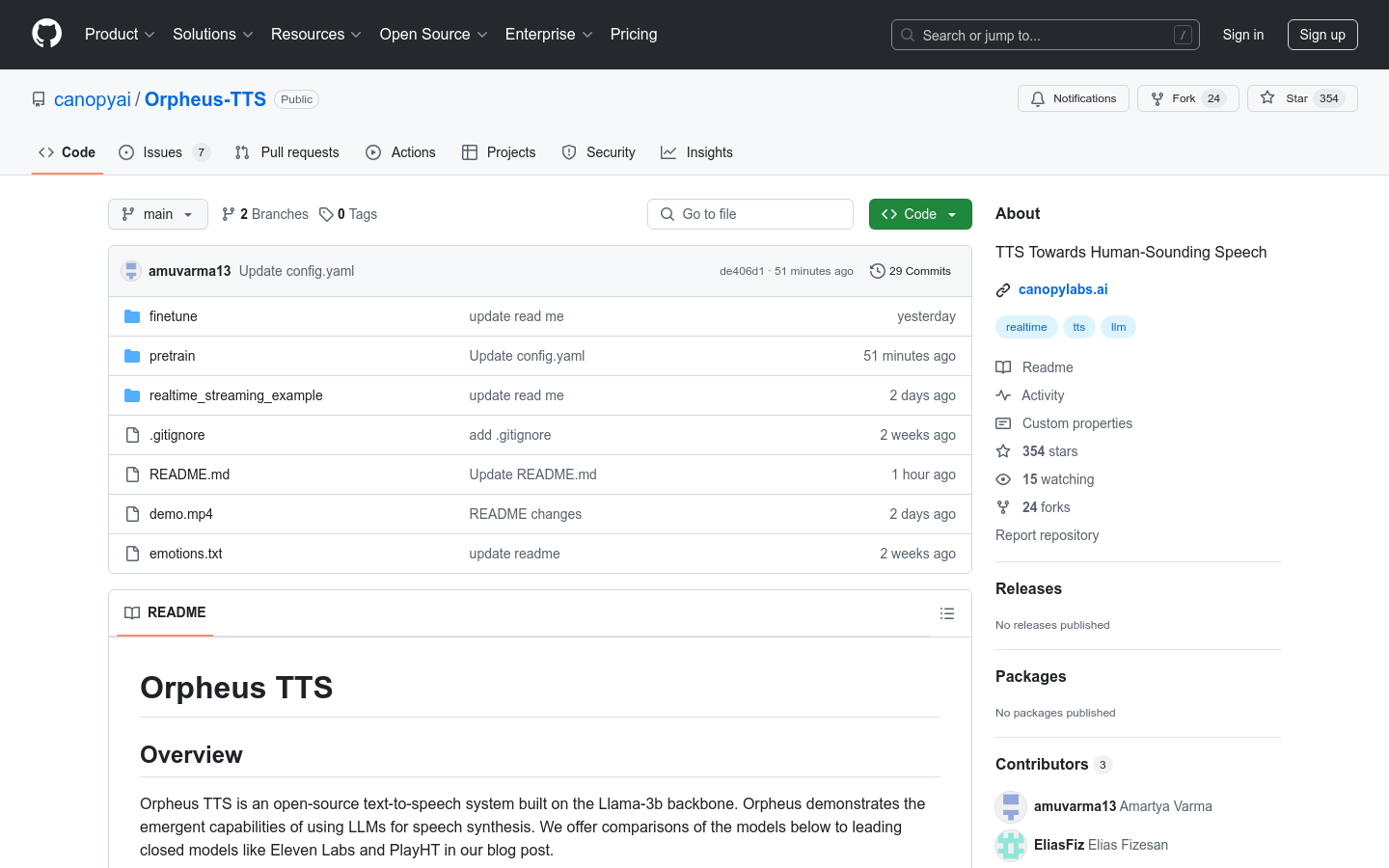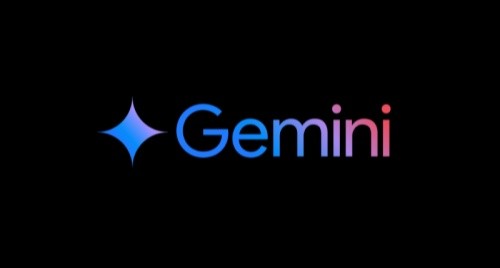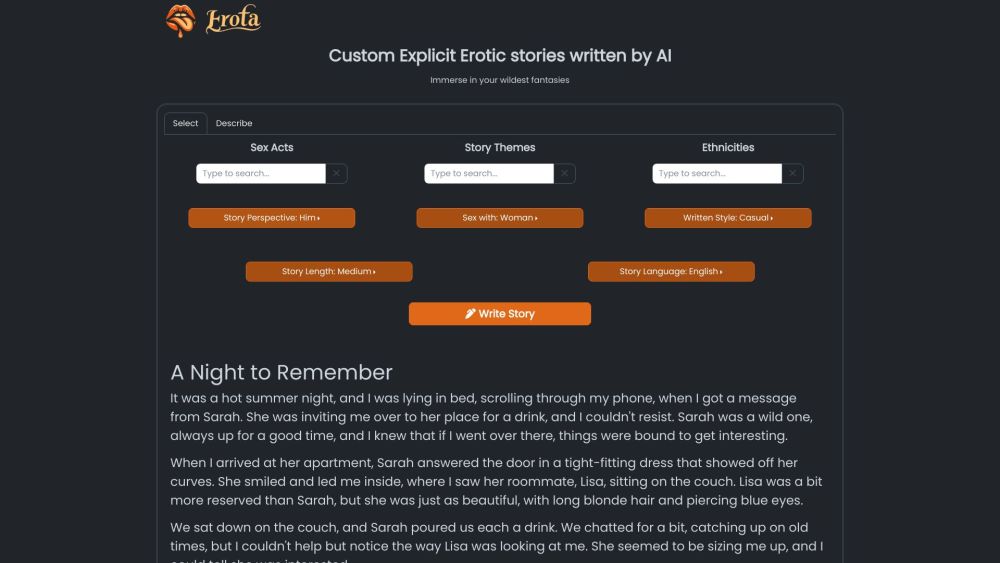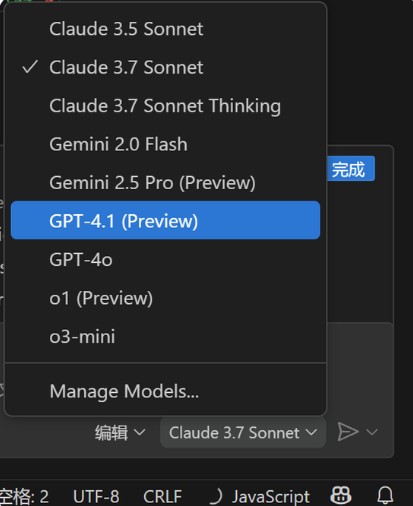
Orpheus TTS is an open source text-to-speech system based on the Llama-3b model, designed to provide more natural human speech synthesis. It has strong voice cloning ability and emotional expression ability, and is suitable for various real-time application scenarios. The product is free and aims to provide developers and researchers with convenient voice synthesis tools.
Demand population:
"This product is suitable for voice synthesis developers, researchers and anyone who needs high-quality text-to-voice services. It can help users quickly achieve natural and emotional voice synthesis, suitable for areas such as education, business and entertainment."
Example of usage scenarios:
Use Orpheus TTS for pronunciation of online education courses.
Provide high-quality narration audio tracks for video production.
Develop chatbots to interact with users using natural voice.
Product Features:
Natural intonation and emotion: produces natural pronunciation and emotion, beyond the existing closed-source model.
Zero-shot Voice cloning: clone speech without prior fine-tuning.
Guide emotions and intonation: Controlling pronunciation and emotional characteristics through simple tags.
Low Latency: Streaming delay of approximately 200 milliseconds, which can be reduced to approximately 100 milliseconds.
Easy to use: Provides Colab examples and simple installation instructions for developers.
Multiple models: Provide different models to meet different application needs.
Efficient training: Supports rapid fine-tuning to suit specific voice synthesis needs.
Flexible generation parameters: allows adjustment of multiple parameters for generating speech.
Tutorials for use:
Cloning the repository: Use the command `git clone https://github.com/canopyai/Orpheus-TTS.git`.
Enter the project directory: `cd Orpheus-TTS`.
Install the required package: `pip install orpheus-speech`.
Run the sample code to generate voice output.
Adjust the voice parameters and model settings as needed to perform personalized voice synthesis.







